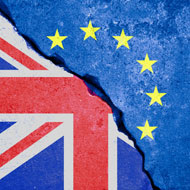Calls to add vets to shortage occupation list

It is thought unlikely that universities in the UK will be able to meet the increased demand in such a short timeframe.
The BVA and RCVS are calling for veterinary surgeons to be placed on the Shortage Occupation List to address current and future recruitment issues within the profession.
Recruitment and retention of vets has been a growing concern for some time in the UK. Evidence from recent surveys suggests a current workforce shortage of 11 per cent in small animal practice, as well as increasing difficulties in hiring suitably qualified staff.
Placing the profession on the shortage list would reduce the restrictions on recruiting veterinary surgeons from overseas, which the BVA and RCVS said will become a necessity after Brexit. It is thought that existing shortages will worsen after the UK’s exit from the EU, while changes in trade could mean increased demand for veterinary skills.
The organisations said that adding vets to the shortage list is an ‘immediate priority’, in their joint response to the Migration Advisory Committee’s call for evidence on the impact of Brexit.
Around 50 per cent of vets registering in the UK each year are graduates from the EU, and unless appropriate immigration measures are put in place when the UK leaves the EU, this contribution may decline, leaving a large gap in the workforce.
Research suggests around one fifth of BVA members feel that recruitment has become more difficult since the EU Referendum. Meanwhile, a study commissioned by the RCVS found nearly a third of non-UK European vets and nurses are considering a move back home.
Despite its small size (around 23,000) the veterinary profession performs a range of roles that are vital for the UK’s economy and standards in society. Livestock outputs, worth £12.7 billion last year, could suffer, along with the equine industry and aquaculture. The £3 billion companion animal veterinary market could also experience significant losses as a result of workforce shortages.
EU veterinary surgeons make a particularly significant contribution to critical roles in public health. It is estimated that 95 per cent of official veterinarians working in abattoirs are from overseas, and a large majority of these are from the EU. Reducing veterinary presence in slaughterhouses could increase the risk of food fraud and animal welfare breaches.
Although the number of UK veterinary graduates has increased year-on-year, it is thought unlikely that universities in the UK will be able to meet the increased demand in such a short timeframe.
BVA’s senior Vice President Gudrun Ravetz said: “Our members have been reporting problems with recruitment and retention of vets for several years and this situation will only worsen under Brexit unless appropriate measures are in place.
“Vets are vital to our society. Across the UK vets are needed to certify imports and exports, conduct cutting-edge research, prevent disease outbreaks, ensure food safety in abattoirs and achieve our world leading standards in animal welfare.”
She said the organisations are “setting out a very strong case” for adding the profession to the Shortage Occupation List, while the UK negotiates a longer term immigration policy.



 The latest
The latest